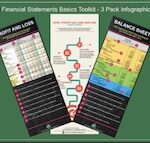Hotel Budgeting Basics Beginners Struggle With – Expense KPIs
Are you considering expense KPIs in your hotel budgeting process?
Did you know that your revenue KPIs budget depends a lot on your expense KPIs budget?
Often managers place emphasis on the budgeting of hotel revenue but not so much on expenses.
That is a huge mistake to say the least.
Why, you ask?
Let me explain.
Expense KPIs are critical to any hotel budgeting process.
Grab this EXCEL Spreadsheet
Don’t miss our 5 Killer Hotel KPIs Dashboard
Get this exclusive Excel Template that you can customize to create your own 5 Killer Hotel KPIs Dashboard
As much as revenue KPIs, if not more.
In this chapter I will lay out a strong case for just that.
Meaning, how expense KPIs are an integral part of not just revenue KPIs but also profitability KPIs in hotel budgeting.
In the process, we will visit questions like:
- What is the meaning of hotel expenses?
- What are overhead expenses for hotels?
- What is the biggest expense for hotels?
and more.
Take a look at the infographic below on hotel budgeting and forecasting.
Click to watch the video on hotel budgeting and forecasting
This Chapter 3 of the Ultimate Guide on Hotel Budgeting and Forecasting will cover:
Expense KPIs - Budgeting for the Cost of Doing Business
Have you heard of the concept of Cost of Doing Business?
That, running a business brings with it certain expenses which are unavoidable.
it begins with the realization that generating revenue does not happen by itself.
In other words, generating revenue requires certain expenses to be incurred.
That is part of the Cost of Doing Business concept.
In essence, creating a budget for revenue will mean budgeting for expenses as well.
Budgeting for What you Incur to Earn Revenue
Until this point we have been talking about how revenue may be earned or generated by a hotel.
However, we will now see how the cost of doing business is what actually produces the revenue.
In other words, incurring expenses is almost a given toward earning revenue.
Therefore, in any planning process, knowing how much expenses to budget for is key.
This serves as a KPI for expense management.
It is important to understand however that:
- revenue is not earned automatically
- as soon as expenses are incurred.
Revenue and Expenses share a great relationship.
They influence each other a lot.
The simplest definition of expenses would be that it is:
- cost that is incurred
- both toward earning revenue and
- keeping the business going.
This is why expenses are called as the cost of doing business.
Every expense incurred does not result in revenue.
However, every expense incurred is toward running the business.
So that earning revenue is optimized, as in the highest level possible.
Expense Budgets may broadly be placed in 3 broad categories:
- Direct & Indirect
- Total & Unit
- Fixed & Variable
It is important to note that the same expense is just being given a criterion for its categorization.
You look puzzled.
Let me explain.
Direct & Indirect Expense KPIs Budget
The first categorization is based on the relationship of the expense to revenue earned.
We will see expenses in the form of some financial KPI examples too later.
If the expense is directly linked to the generation of revenue, it can be considered a Direct Expense.
So, if room revenue is budgeted for, direct expenses in earning that should also be budgeted for.
For example:
Say, room revenue is earned from a guest room.
Then, there are expenses incurred in getting that room ready for occupation by the guest.
These could be amenities placed in the room etc.
So, a budget must be created for Guest Room Amenities as direct expense KPIs.
Indirect expenses are those that are incurred for generation of revenue.
But they cannot be identified either:
- directly to the revenue or
- expenses incurred generally in running a department which is related to the revenue being earned.
For example:
Say, expenses are incurred in running a Shuttle bus for guests to be picked up from the airport.
These cannot be identified directly to revenue earned but form part of Rooms department expenses.
This would be Indirect expenses of the Rooms department.
So, a Shuttle Bus indirect expense must be budgeted for as expense KPIs.
Total & Unit Expense KPIs Budget
The next category is about whether expenses are:
- considered in accumulation as Total Costs or
- when they are calculated per unit of business volume or Unit Costs.
For example:
Consider the costs of consumption of cleaning supplies in the Rooms department.
Say, for the month of December 2019 they total to $3,723.
These will be considered Total Costs.
So, a Cleaning Supplies budget would be created.
However, say, the above Cleaning Supplies expense total is divided by rooms occupied for the month.
That will result in a Unit Cost.
Meaning, Expense incurred on Cleaning Supplies for every room occupied in that same month.
In effect, a Cleaning Supplies Per rooms occupied budget will be created.
This will be based on the Budget Cleaning Supplies and Budget Rooms Occupied.
Note that Unit Costs are normally calculated only for Variable Expenses (see next section).
Fixed & Variable Expense KPIs Budget
The last but certainly not the least category is that of Fixed and Variable Expenses.
Fixed Expenses are those which do not change with change in business volume.
Business volume is:
- occupancy in Rooms department
- covers served in Food & Beverage department
Variable Expenses on the other hand are those which do change with change in business volume.
Variable Expenses often change proportionately with change in business volume.
Or even revenue but not always.
Payroll & Related Expenses KPI Budget
The single biggest expense for hotels that needs to be budgeted is Payroll & Related Expenses.
In other words, employee, manning and salary/wage rate and related expenses.
Employee Expenses
Look at the Payroll & Related expenses Budget of the Rooms department of Paradise Hotel shown below:
Employees in a hotel may be on a permanent hire basis or temporary.
Notice above the first two expense line items of Payroll & Related Expenses of the Paradise Hoel.
They are Salaried and Hourly.
The Salaries are the permanent employees while the hourly are the temporary ones.
Say, you are looking for the most important difference between:
- permanent (Salaried) and
- temporary (Hourly) employees.
It is that temporary (hourly) employees do not enjoy all benefits that permanent employees enjoy.
Thus total Payroll & Related expenses for a permanent employee will be much higher than that of a temporary one.
Payroll & Related Expenses are arrived at:
- after taking into account and adding up all the employee numbers and
- multiplying them with the salary or wage rate applicable to each of those employees.
Or, Payroll & Related Expenses is the product of manning (employee numbers) and salary / wage rates.
Every budget for payroll & related expenses will consider these elements in the planning process.
Manning
Manning is a word or term used to denote employee numbers.
Say, the permanent manning of the Paradise Hotel is 115.
What we are saying is that Paradise Hotel has 115 permanent employees.
Expenses incurred on permanent manning are often considered as Fixed Expenses.
This is because permanent manning is available whether hotel does 30% occupancy or 90% occupancy.
Remember what we said earlier.
That Fixed expenses do not change with change in business volume or occupancy in Rooms department.
In North America (USA, Canada), as in many other countries, there is no concept of permanent manning.
All employees are on contractual basis which tends to be limited to a couple of years (renewable often).
As such, Payroll & Related Expenses can be considered a Variable (actually Semi Variable) expense.
This however is strictly true because employees cannot be hired and fired according to occupancy.
Budgeting for manning (employee numbers) will have to carefully weigh all these factors.
Salary / Wage Rates
Salary / Wage Rates are the other component of Payroll & Related Expenses.
We saw earlier that the first one is the manning or employee numbers.
Salary / Wage Rates are different based on level of an employee in the organizational hierarchy.
The higher the level of organizational hierarchy an employee is placed, the higher the wage rates.
At most times, an employee is entitled to a salary / wage increment that the organization announces.
This is based on their performance evaluation every year.
Bonuses are paid out based on performance of the hotel and profit it earns during a particular year.
From the Paradise Hotel Rooms department statement, you will notice that there are two more items of expenses in Payroll & Related Expenses:
- Payroll Taxes and
- Benefits.
Payroll Taxes are dependent upon the law of the land.
It is a tax on the salary / wage component based on a certain percentage.
Many countries do not have Payroll Taxes while many do.
Benefits are expenses incurred in providing services for employees.
For example:
- medical insurance,
- retirement contribution,
- employee cafeteria,
- transportation and so on
are expenses that the hotel pays on behalf of each employee.
As said earlier, benefits are mostly applicable to salaried employees.
Federal mandates may require every hotel to pay certain expenses on behalf of employees mandatorily like for example medical insurance.
Again this will depend upon the law of the land.
Canada has universal health insurance provided free of cost to all citizens.
United States of America does not have this and citizens have to pay their own insurance.
Of course, for those who are employed, the companies take care of that.
No operating budget of a hotel is complete without these elements for payroll & related expenses.
Budgeting for Variable Expense KPIs
You will see how understanding Variable expenses and Unit Costs will assist you in tools of analysis like budgeting and forecasting.
See the image below:
You saw how Cleaning Supplies (a Variable Expense) can be measured for every guest room occupied with a Unit Cost expense KPI.
These are integral to any planning process in hotels.
So, there you are.
Expense KPIs which form the backbone of a hotel budgeting process as much as revenue KPIs.
One other fact will be explored in the next part of this series.
This will be how expense KPIs also influence bottom line or profitability KPIs.
Over to you.
How do you budget for revenue and expense KPIs in your hotel?
Do you consider the above factors?
Leave your comments below which I will be keen to read and respond where relevant.
Chapter 4...
In Chapter 4 of this Ultimate Guide on Hotel Budgeting and Forecasting, we will go through the all important profitability KPIs.
Sign up to Speed Tips Newsletter for more tips, strategies and secrets straight to your inbox.
Other Chapters of Ultimate Guide on Hotel Budgeting and Forecasting
15







